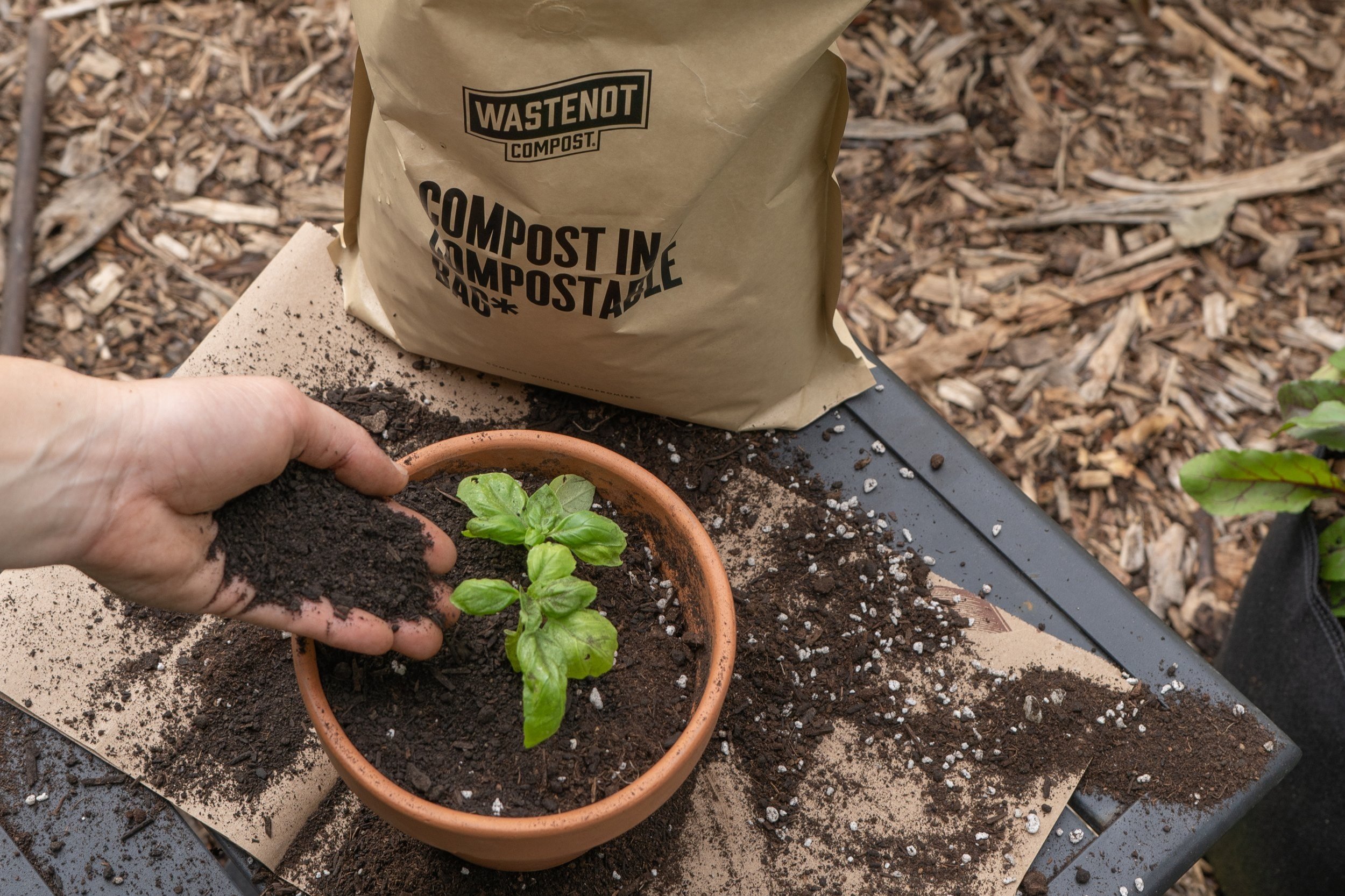PLANTS PROVIDE US WITH THE ENERGY AND NUTRIENTS WE NEED TO STAY ALIVE.
THAT’S WHY OUR PLANT MATTER, MATTERS!
It takes a long time for our food to grow. Taking nutrients from the soil through their roots, plants can take months to harvest energy from the sun, soil, air, and water that we give them. Organic matter is a major host for storing carbon, holding 1.5 trillion tons of carbon worldwide in the form of healthy soil.
We love compost here at WasteNot because it returns the nutrients from our food waste into a nutritious soil amendment that we lovingly call “black gold”.
WHY IS FINISHED COMPOST SO GOOD FOR SOIL?
Below, we have recommendations for how to use composting for general planting, providing your garden items with a rich source of nitrogen, phosphorus, and potassium. With more areas for drainage, compost provides a great structure for robust root systems. Gradually releasing these nutrients over time, compost is known as a slow-release fertilizer, expending vital nutrients to these plant structures over time rather than in concentrated amounts.
As long as you compost the correct “browns” and “greens”, the compost will work its magic on the Earth when this “black gold” is mixed into our soil. Rising global temperatures, altered precipitation patterns, and extreme weather events have increased in recent decades, and our actions must change soon to address the growing problem of soil erosion. By increasing water retention, finalized compost works to limit the impacts of soil erosion on our ecosystems.
HOW DOES COMPOSTING REDUCE YOUR ENVIRONMENTAL IMPACT?
Using compost means less need for commercial pesticides and fertilizers. Compost is a “slow release fertilizer” and stores carbon from the atmosphere, providing a net benefit to our environment.
Chemical pesticides harm our ecosystems, as they can also hurt living organisms that aren’t pests, including humans spraying these chemical compounds. After repeated use of the same class of pesticides for years on end, crop populations often develop a resistance to these chemicals, encouraging these farmers to use more and more pesticides. Compost has been known to reduce soil erosion and runoff, helping to retain fertilizers and pesticides that would have otherwise washed away, while suppressing plant diseases and pests.
OUR MISSION IS TO DECREASE THE AMOUNT OF GREENHOUSE GASES EMITTED FROM OUR LANDFILLS BY CREATING “BLACK GOLD” FROM YOUR FOOD SCRAPS AND OTHER COMPOSTABLE WASTE.
HERE’S HOW TO USE YOUR BAG OF NUTRIENT-RICH COMPOST IN YOUR GARDEN:
-
Sprinkle: Super boost your plants, staying away from the stem.

2. Mix: Use 20% compost with 80% potting soil for general planting.

3. Spread: Up to 1/2 inch layer over a seeded bed or on your lawn.

4. Store: The bag our compost is delivered in is intended to break down easily - keep the bag in a dry, cool place.

5. Compost: Discard the bag in your WasteNot Compost Bucket when finished.
Click here to watch a tutorial on how to use finished compost with your potted plants.
If you have any questions about our finished compost, please reach out to our support team at hq@wastenotcompost.com.
Sources:
“Benefits of Composting” Composting at Home, (EPA) https://www.epa.gov/recycle/composting-home#benefits
“Trash to Treasure: The Incredible Benefits of Composting” Pahriya Ashrap and Amber Cathey, University of Michigan
https://sph.umich.edu/pursuit/2019posts/benefits-of-composting.html

